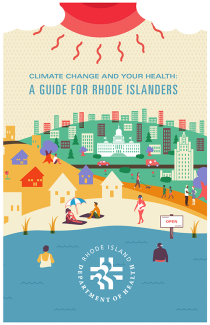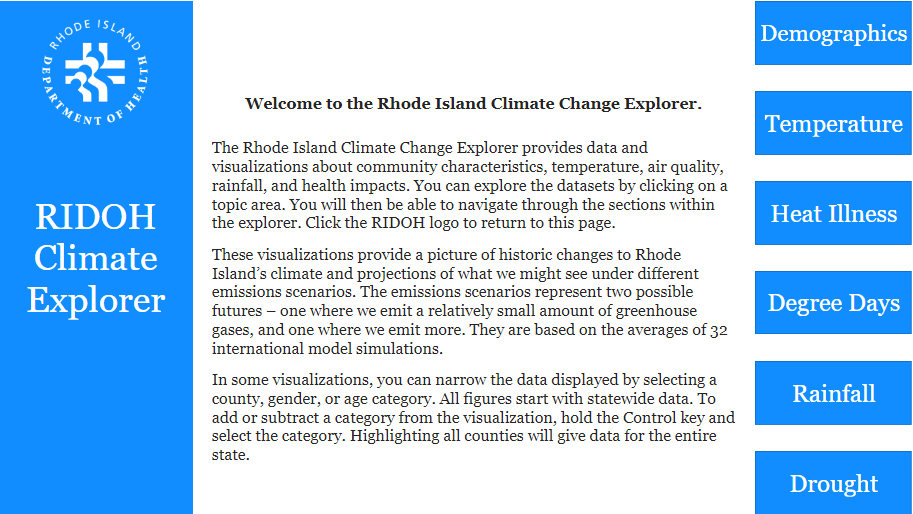Changes in our Earth's climate affect our health, the environment, and our economy. While natural causes contribute to these impacts, human activities are contributing to climate change, primarily through our energy consumption, which releases billions of tons of carbon dioxide (CO2) and other greenhouse gases into the atmosphere every year. MORE
As climate change continues into the future, we will see Rhode Islanders face increasing consequences including:
- Increased deaths and illnesses from heat stress as temperatures rise;
- Increased injuries and illnesses due to extreme weather events, such as storms and floods;
- Increased respiratory and cardio-vascular illness and deaths from higher levels of smog (low level ozone);
- More problems with allergies brought about by elevated levels of pollens from more vigorous weed growth and longer pollen seasons.
- Increased rates of infectious diseases carried by insects or in food and water;
- Threats to food and water supplies;
- Increased damage to property and infrastructure due to flooding, storms, and sea-level rise;
- Greater levels of mental and emotional stress in response to climate change and extreme weather-related emergencies.

What You Should Do
- Stay Cool: Learn how to stay safe when the weather is hot and humid. MORE
- Eat Well: Consume more fruits, vegetables, and local foods and eat less processed food and animal products. This can help you to stay fit and decrease the amount of energy used to produce and transport your food. Overweight and obese individuals are at increased risk for many diseases and health conditions, including high blood pressure, type 2 diabetes, coronary heart disease, and stroke. These conditions increase the health risks posed by extreme heat and storms.
- Choose Alternative Transportation: walk, bike, take mass transportation, or carpool. This can help you to exercise and decrease your carbon dioxide emissions.
- Be Green at Home and at Work:Find ways to reduce your energy consumption and make healthy choices.
- Prepare: At Ready.gov you can access information that will help you to prepare for the unexpected. These resources will assist you in getting an emergency supply kit, making a family emergency plan, and staying informed about the different types of emergencies that could occur and their appropriate responses.
- Support your Friends and Neighbors: During a storm, disaster, or extreme heat event, make sure your friends and neighbors are safe.
At-Risk Populations
- Babies and young children;
- The elderly;
- People with chronic conditions;
- People who are obese;
- Athletes;
- Outdoor workers;
- People of low socio-economic status;
- People living on the coast or in flood zones.

